On September 17th, the Opening Ceremony of Qi Culture Inheritance and Innovation and Digital Liberal Arts Laboratory of Shandong Provincial University and the Construction and Development Seminar were held at SDUT. ZENG Xianwen, director of Science and Technology Department of Shandong Provincial Department of Education, together with LI Yuxia, president of SDUT, WANG Zhimin, former vice president of Shandong Normal University and honorary president of Qi Culture Research Institute of SDUT, CHU Jingli, a member of Information Resources Management Discipline Review Group of Academic Degrees Committee of State Council and director of Department of Information Resources Management of University of Chinese Academy of Sciences, SU Shoubo, a member of Standing Committee of Party Committee and vice president of SDUT, as well as famous experts and scholars in related fields attended the ceremony. SU Shoubo presided over the ceremony.
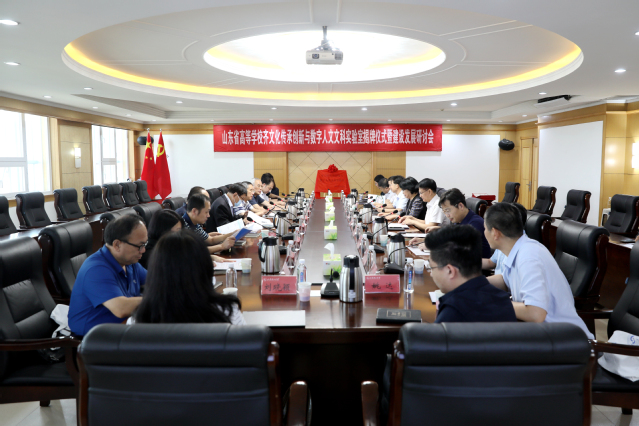
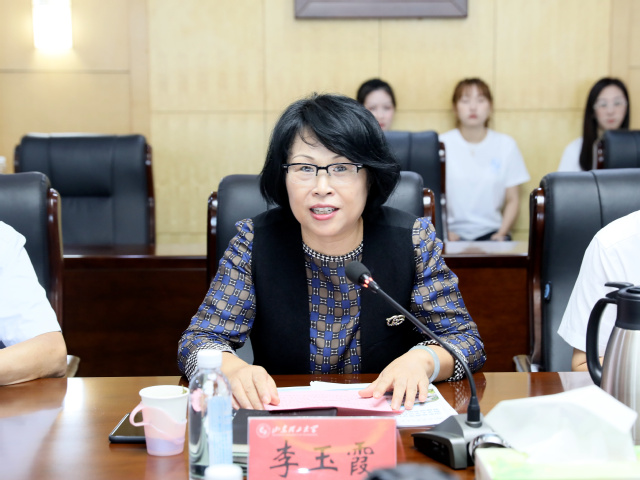
LI Yuxia gave a welcome speech and pointed out that to deeply implement General Secretary XI Jinping’s remarks on carrying forward the glorious traditional Chinese culture and strengthen the research, interpretation, and innovation of Qi culture, SDUT has gathered multiple advantageous forces to establish the Qi Culture Inheritance and Innovation and Digital Liberal Arts Laboratorywhichwas approved as one of the first batch of liberal arts laboratories among universities in Shandong province last year. The laboratory has become an important realization path for Qi culture to “come alive”, and it has also provided a new version of the information resource management discipline, which would strongly support the creative transformation and innovative development of Qi culture. The holding of this meeting would surely inject strong kinetic energy into the high-quality development of the laboratory and revitalize the construction and development of the information resource management discipline.
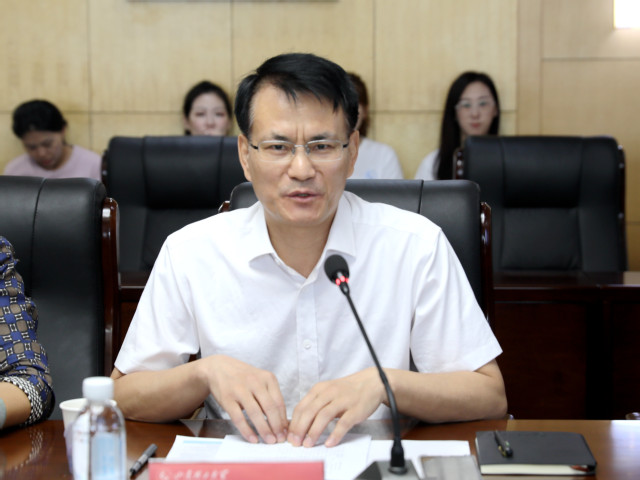
ZENG Xianwen proposed requirements for the development of the laboratory from eight aspects, including the transformation of the data industry into a fourth industry and changes in social needs. He also proposed specific requirements from ten aspects, including the structure andmission of the laboratory.
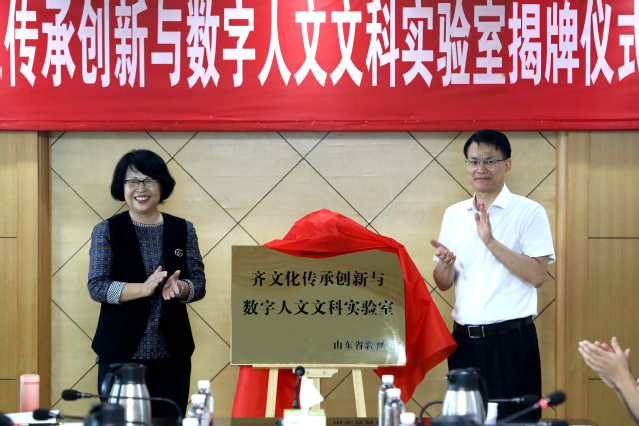
ZENG and LI jointly unveiled the Qi Culture Inheritance and Innovation and Digital Liberal Arts Laboratory.
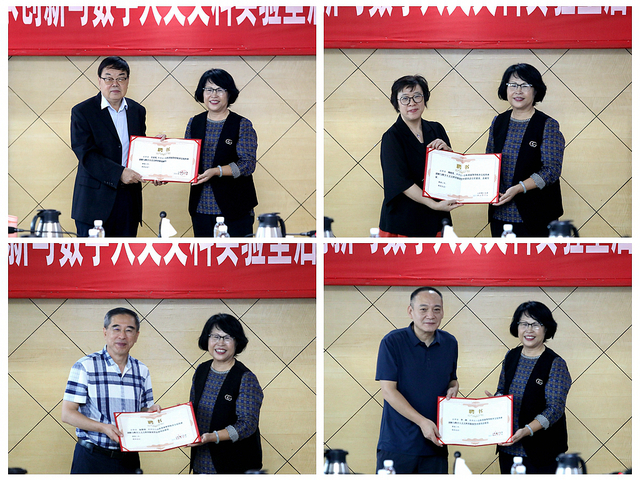
The list of laboratory consultants and academic committee members was read out at the ceremony. LI Yuxia issued letters of appointment to the experts and scholars mentioned above.
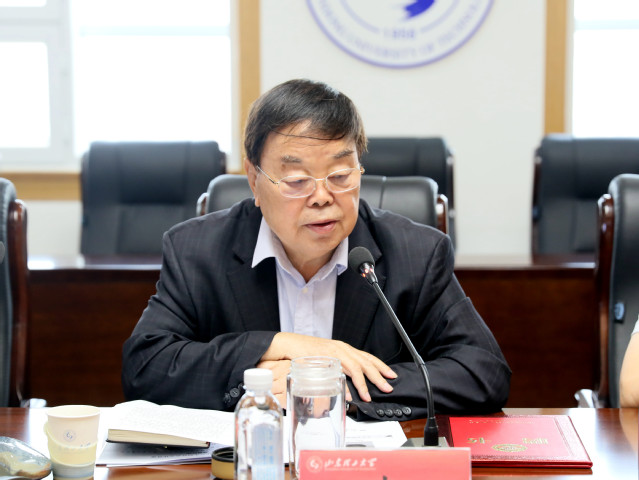
WANG Zhimin, speaking on behalf of the laboratory consultant, detailed the profound connotation of Qi culture and its historical importance in Chinese civilization. He also showed that he would honor his mission and do his best for the construction of the laboratory.
Professor MA Feicheng, advisor of the laboratory, a senior professor of Humanities and Social Sciencesand director of the Big Data Research Institute of Wuhan University, as well as first-tier Professor FENG Huiling, a former executive vice president and dean of Research Center for Digital Humanities of Renmin University of China, sent congratulatory letters to congratulate the opening ceremony of the laboratory.
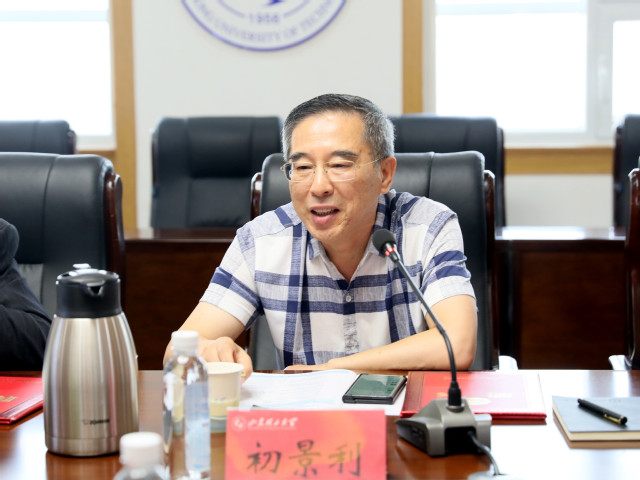
CHU Jingli spoke on behalf of committee members that they would play a good role and jointly develop and construct the laboratory. He also proposed suggestions on how to face social needs, assist the development of the Qi cultural industry, and leverage the role of media communication.
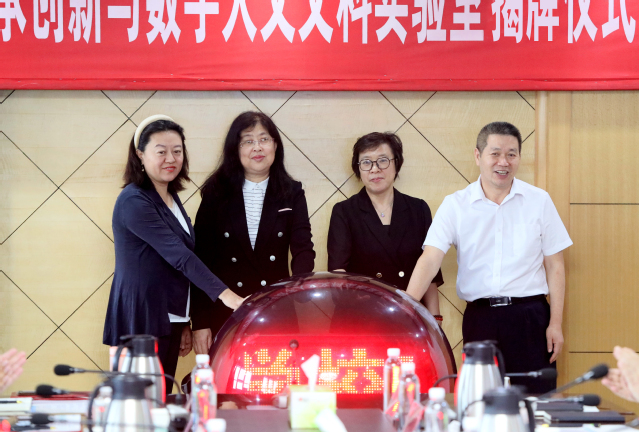
Held on-site were also the launch ceremony for the first batch of selected projects in the laboratory “Value Assessment of Intangible Qi Cultural Heritage” and “Database Construction of Intangible Qi Cultural Heritage”
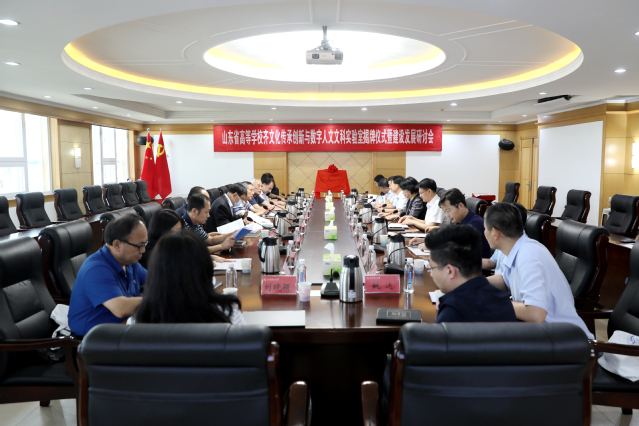
ZHOU Xiaoying presided over the first academic committee meeting and seminar on the first batch of selected laboratory projects. The members of the academic committee conducted a lively discussion on the construction and development of laboratory and project research.
SU Shoubo gave a concluding speech, expressing thanks to members of the academic committee for their valuable suggestions and proposed requirements for the development of the laboratory.
